My Life in a Nutshell: A Novel is the story of one man’s struggles with debilitating anxiety. Brian Cunningham has isolated himself to such a degree that his human contact is barely more than an hour a day. While lonely, he feels powerless to change his life. Unexpectedly, his safe little world is invaded by one Abigail Harris, a seven-year-old girl who, for the last five years, has bounced from foster home to foster home. She has come to live with an aunt and uncle she has never known. Unsure if she can trust her new environment, she turns to Brian. Neither one quite knows how to live in the world. Can they possibly help each other?
~~~~~~~~~~
I had the opportunity to interview Tanya about this project and her writing in general. So, welcome to Celtic Connexions, shall we get down to it?
How long does it take you to get from the initial concept for a novel to the finished product?
For me, the process involves two main stages. The first is my main love, the creation of the story and the characters and the world. This is a fluid, circular process that involves research, brainstorming, outlining, and writing. I flow among these activities for approximately five or six months (depending on how many other things vie for my attention), and then, hooray, there’s a novel! At this point, I have a bit more left in the first stage. This is when I go back through from beginning to end and do edits (I edit throughout the process, of course). Next, it’s onto stage two. I send it to my editor, and once the two of us have exchanged the document back and forth and are satisfied, it goes on to Inkwater Press. It takes another couple months for it to be fully designed and formatted. Then, it enters the ARC (advance reading copy) stage and is sent out for early reviews. Once those are all in, it’s ready for release! Typically, the entire process takes about a year. That seems like a long time, but I grow so very close to my characters that I’m not ready to let them go soon, so I don’t mind. (Oh, I’m ready to let them go into the world, but I’m not ready to let them go to be replaced with a new set for a new novel.)
Do you see yourself as one of the characters in your books, or are they an amalgamation of a number of people you’ve met throughout your life?
I write realistic fiction, and I draw on things from the real world (including my own world); however, all of my characters are purely fictional. Their struggles are based on real-life struggles, but they’re their very own people.
What motivated you to begin writing?
For as long as I can remember, I’ve loved writing. I wasn’t always confident enough to do anything with it other than writing things for school, college and, later, graduate school. I’m also passionate about social justice, particularly around mental health/illness. I’ve worked as a teacher and a counselor, I have personal and professional experience with mental illness, I want to increase understanding and empathy, and of course I still have that love to write. I decided to be brave and combine them all into a writing career that includes writing novels that illustrate what it’s like to live with mental illness or to love someone with mental illness.
Most authors have difficulty coming up with titles for their work. Do you have the same problem?
Most definitely! I can write a nearly 400-page novel with ease, but I can neither summarize it or come up with a title! The title of my last novel (Leave of Absence) was developed with the help of my editor. She created a fantastic list of options, and I selected the final choice.) I’ll share the story of my current novel below!
How did you decide on the title for this book?
I actually came up with this one all by myself! I asked my editor for input if she didn’t like the title I used, but she had none. She approved of mine! As I was writing, I would think of the title here and there, while doing dishes or showering or other such things. Nothing really jumped out at me. One day when I was writing a scene in which Brian (the main character) was meeting with his new therapist, he was asked to describe his life in a nutshell. Bingo! That was it! That phrase is symbolic of a few different things (which become evident in the story), and I knew it was perfect. The story is told in the first person POV as Brian, thus the title My Life in a Nutshell: A Novel (The term “A Novel” was tacked on by the publisher just to make sure people didn’t think it was a memoir.)
Is your family supportive of your writing?
I’m very fortunate that yes, they are very supportive indeed. Both of my children are still at home, but at ages 17 and 12, they are definitely old enough to make this easier. If they were young, that would be a different story. My husband, too, is supportive of my doing this. Trying to make a career of writing is a huge risk, and I feel quite anxious about it often. But I believe in my “cause,” and my family does, too, so that’s really helpful and quite encouraging.
Thanks for stopping by today, Tanya. I know you’re busy what with the promo party over on Facebook and all. Good luck with your novel. It sounds like a fascinating read.
Thank you, Melanie, for taking the time to “chat” with me. Thanks to you and your readers for wanting to get to know a little bit about me!
~~~~~~~~~~
YOU CAN BUY MY LIFE IN A NUTSHELL a novel at:
~~~~~~~~~~
Tanya J. Peterson, MS, NCC
Mental Health Novelist, Writer, & Speaker
Tanya J. Peterson holds a Bachelor of Science in secondary education, Master of Science in counseling, and is a Nationally Certified Counselor. She has been a teacher and a counselor in various settings, including a traditional high school and an alternative school for homeless and runaway adolescents, and she has volunteered her services in both schools and communities. Peterson is an active volunteer with the National Alliance on Mental Illness (NAMI), and she is a regular columnist for the Anxiety-Schmanxiety blog on HealthyPlace.com.
She draws on her education, experience, and personal background with bipolar 1 disorder and anxiety to write stories about the psychological aspect of the human condition, specifically mental illness and the impact it has on human beings. Her goal is to change the way the world thinks about mental illness and the people who live with it.
Peterson believes that fiction is a powerful vehicle for teaching fact. Further, she knows that people empathize with characters in novels, and commonly they transfer their empathy to real-life human beings. To that end, she has published Leave of Absence, My Life in a Nutshell, and the YA novel Losing Elizabeth. Additionally, she has published Challenge!, a short story about a person who finds the confidence to overcome criticism and achieve a goal, and a book review of Linley and Joseph’s Positive Therapy: A Meta-Theory for Positive Psychological Practice that appeared in Counseling Today, the national publication of the American Counseling Association.
Peterson has also been interviewed on numerous radio shows, given presentations on mental illness and book readings nationwide, spoken on mental illness at the 2013 national conference of the Mothers of Incarcerated Sons Society, Inc., and has been quoted in various articles about mental health and mental illness.
You can follow Tanya at:
FACEBOOK – https://www.facebook.com/TanyaJPeterson
Twitter – https://twitter.com/tanyajpeterson1

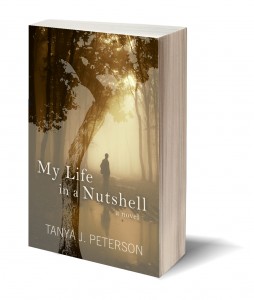

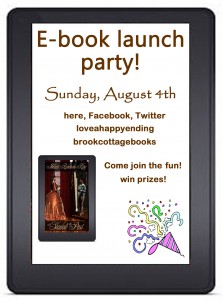
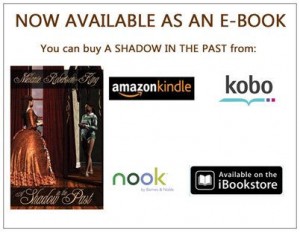
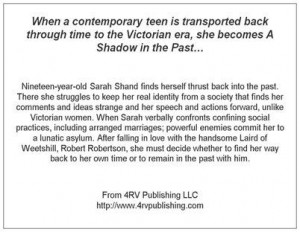
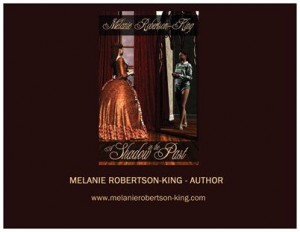

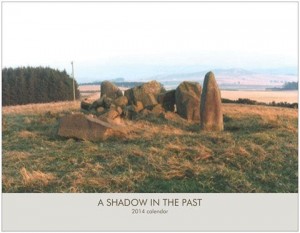


 Now that you know what the book is about – let’s
Now that you know what the book is about – let’s 

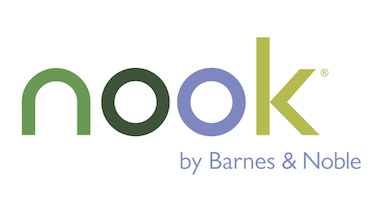

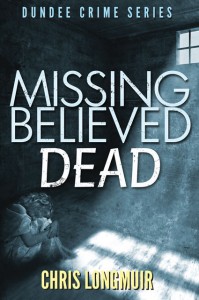
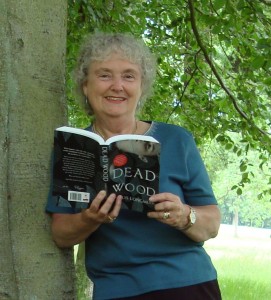 Chris Longmuir was born in Wiltshire and now lives in Angus. Her family moved to Scotland when she was two. After leaving school at fifteen, Chris worked in shops, offices, mills and factories, and was a bus conductor for a spell, before working as a social worker for Angus Council (latterly serving as Assistant Principal Officer for Adoption and Fostering).
Chris Longmuir was born in Wiltshire and now lives in Angus. Her family moved to Scotland when she was two. After leaving school at fifteen, Chris worked in shops, offices, mills and factories, and was a bus conductor for a spell, before working as a social worker for Angus Council (latterly serving as Assistant Principal Officer for Adoption and Fostering).




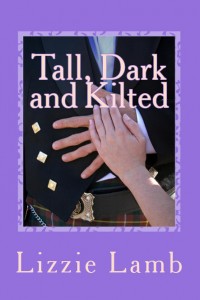 I love the title of your book – Tall, Dark & Kilted. How did you come up with it?
I love the title of your book – Tall, Dark & Kilted. How did you come up with it? Of Scottish/Irish/Brazilian heritage, I was born up in a steel mining town in the Scottish Industrial Belt. The massive RAVENSCRAIG steel mill was quite literally in my back garden. In order to escape from the forbidding industrial landscape I learned to play imaginatively with my friends in the back garden and then started writing extra scenes and characters for the movies I saw on a Saturday morning. I was bitten by the writing bug and never looked back. I lived in Scotland until I was 11 when my parents moved to England in search of work and better opportunities for me and my siblings… Scoll forward to 2006 –
Of Scottish/Irish/Brazilian heritage, I was born up in a steel mining town in the Scottish Industrial Belt. The massive RAVENSCRAIG steel mill was quite literally in my back garden. In order to escape from the forbidding industrial landscape I learned to play imaginatively with my friends in the back garden and then started writing extra scenes and characters for the movies I saw on a Saturday morning. I was bitten by the writing bug and never looked back. I lived in Scotland until I was 11 when my parents moved to England in search of work and better opportunities for me and my siblings… Scoll forward to 2006 –